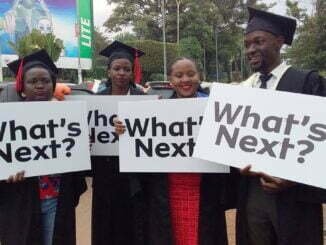
Kampala, Uganda | URN | The Ministry of Education has spent huge sums of money in contracts to print learning materials after failing to procure a printing press for the National Curriculum Development Centre (NCDC), this publication has learnt.
Contract reports on the COVID-19 emergency education response posted on the Ministry of Finance website show that the Ministry of Education contracted three private firms at a whopping Shillings 21.24 billion to print and distribute self-study materials nationwide.
The companies are MK Publishers Ltd, Fountain publishers Ltd, and Baroque Publishers (U) Ltd. However, several sources in the ministry describe this as ‘wasteful expenditure’ arguing that cost would have reduced by half or more if the National Curriculum Development Centre (NCDC) had secured printing equipment as earlier planned.
One of the sources note that NCDC has for long pushed for the procurement of its own printing press but this has remained an unfunded priority.
“NCDC’s job is developing and preparing of educational curricula and related materials like textbooks, teacher and learner guides for primary, secondary and some tertiary institutions in Uganda and owning printing equipment is critical since they have to print these items. Actually, at the time of the pandemic, there was a plan for this but I can’t tell what happened,” the official said.
Adding that, “If we used the COVID-19 times to make such an investment. We could have taken a better step. Now that we did not, we will be spending more and more money on contracts. We missed an opportunity.”
The official’s statement is in tandem with documents from the Ministry of Education submitted to the World Bank and Global Partnership for Education-GPE while applying for COVID-19 emergency education response funds.
The documents show that the process of procuring the said printing equipment had already started by the time of applying for the grant. The equipment was expected in the country by September 2020.
“Printing of materials is very costly and the procurement process time-consuming. Hence currently, a lot of time and money is spent on procuring printing services from service providers. Acquiring a printer for NCDC will greatly reduce the costs of printing and time to respond to the emergency needs,” the document reads in part.
According to the earlier arrangements, National Curriculum Development Centre (NCDC) was expected to pocket the lion’s share of the Shillings 56 billion grant approved in July last year. For instance, Ministry of Education had proposed to allocate NCDC Shillings 1.9billion to develop self-study materials, Shillings 2.6billion Shillings to establish a printer, and Shillings 20.8billion to print and distribute self-study materials.
However, when the funds came, the Ministry of Education ironically procured the services of private publishers. The ministry contracted the private publishers on January 7, 2021, three months after the scheduled date for the delivery of the printer. In a recent interview, Grace Baguma, the Director NCDC noted that they had not received any funds to procure printing equipment and all they did was to develop the materials.
Read Also: Education ministry rolls out distribution of second phase of self-study materials
Alex Kakooza, the Permanent Secretary in the Ministry of Education says that although the process of procuring the equipment in question had started, they needed more funding and expected that it would be prioritized under the GPE project. Kakooza adds that midway the process, the World Bank declined to allocate money for this particular item.

The permanent secretary adds that if NCDC is to acquire the equipment to deter future waste, they will have to procure it using their budget. Besides being costly, procuring of private firms is also blamed for the delayed distribution of the self-study materials.
According to the schedule, learners had to receive the self-study materials last year but they did not come until June this year. At the time of delivery, over one million learners in candidate classes (P7, S4, and S6) who were the intended beneficiaries had completed their final exams.



